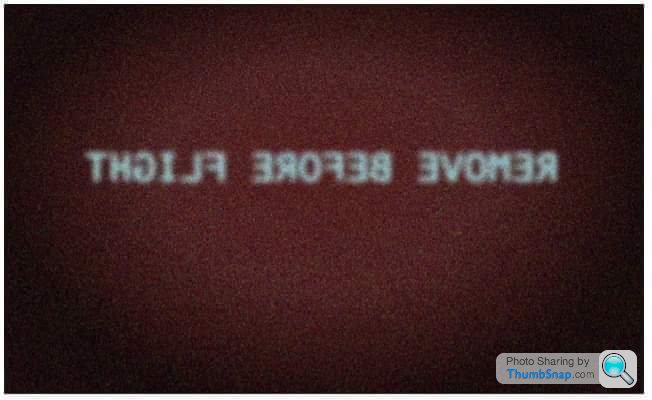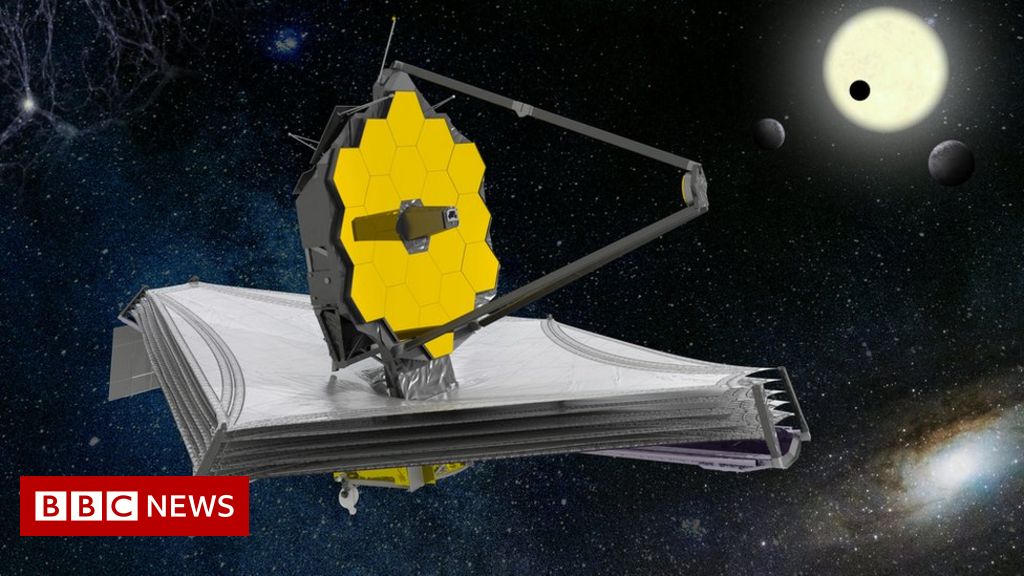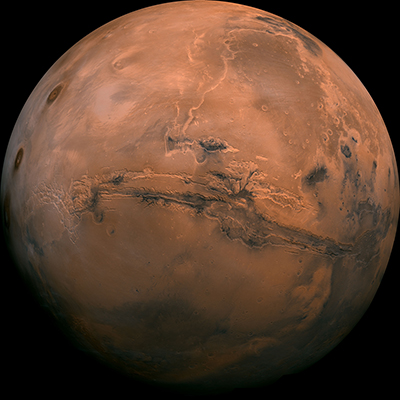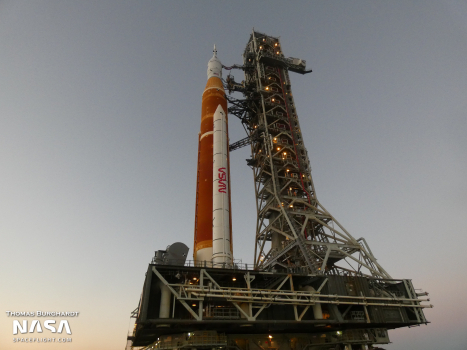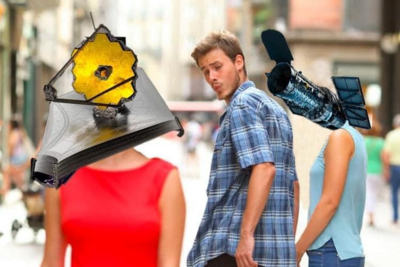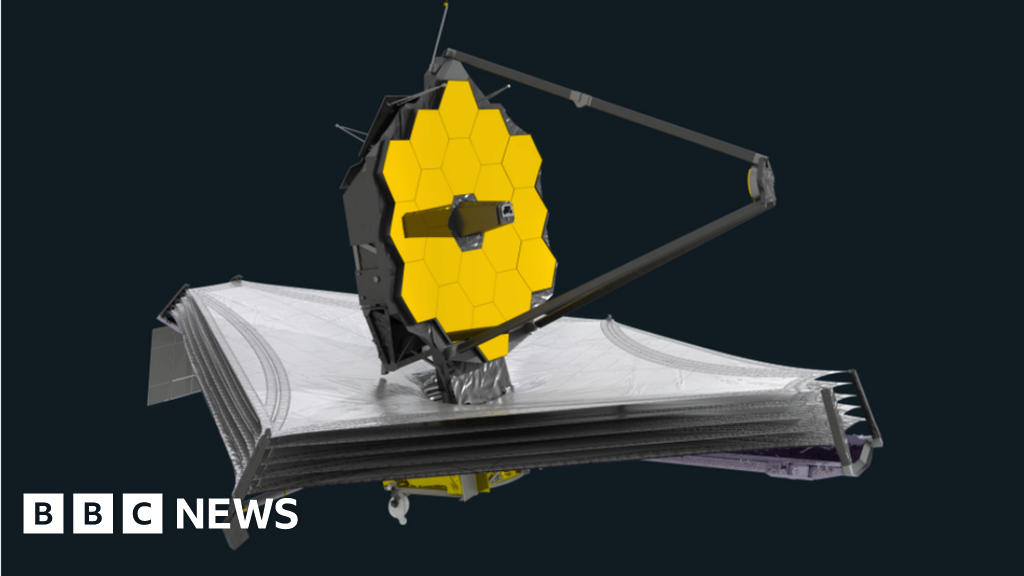DaGaffer
Down With That Sorta Thing
- Joined
- Dec 22, 2003
- Messages
- 18,814
Can't other orbits fuck with it that far out? Or is that why it's life is shorter than Hubbell because it's going to have to make adjustments?
No because that's the really useful thing about Lagrange points, they are at the balance point between gravitational forces.
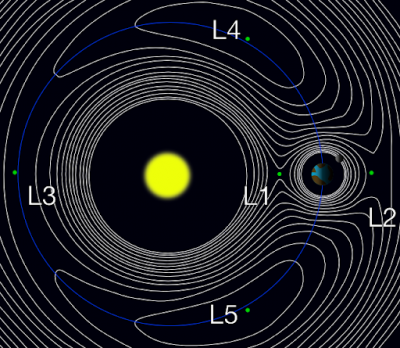
The danger with Lagrange points is if something does drift into one, it tends to stay put, so if we start using them seriously (there are loads of potential applications) we will need to keep them "clean" from all our crap.


